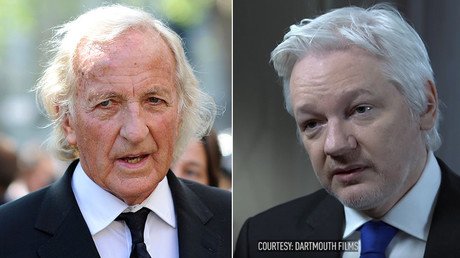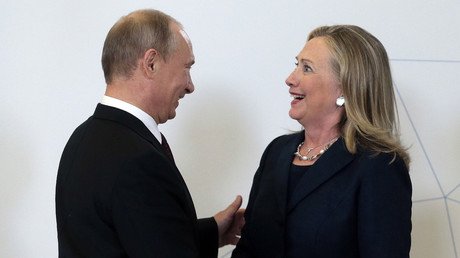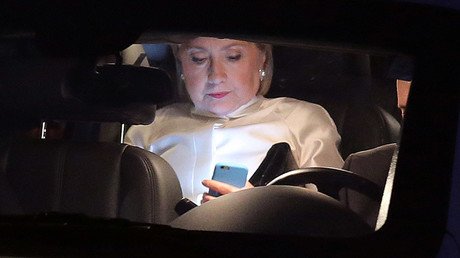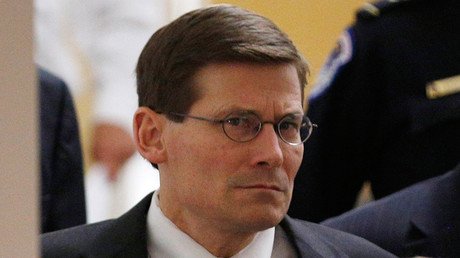Clinton vs. Trump: How world sees US elections
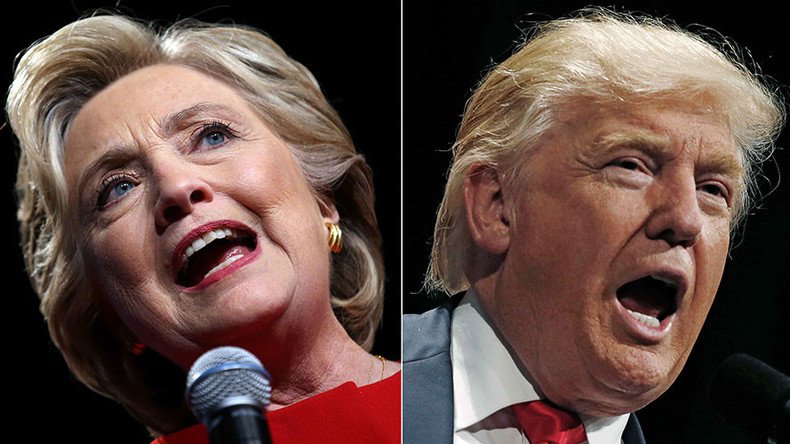
On Tuesday, Americans will head to the polls to have their say in who will take over the Oval Office as the next US President. Ahead of the decision, RT sums up how the world perceives both Democrat Hillary Clinton and her Republican rival Donald Trump.
FOLLOW RT'S US ELECTION LIVE UPDATES
Germany
German media appears to favor Hillary Clinton as victor. “It should be clear that Donald Trump, who scores with nothing but populism, must be prevented from becoming the most powerful man in the world,” Wetzlarer Neue Zeitung wrote.
The Rheinische Post echoed the statement saying that only Clinton could “lead and navigate the country through crisis.” Yet some media outlets cautioned that the Democratic candidate lacks what Trump is scoring high on: The ability “to address the feeling of the Americans.” Clinton “should make no mistakes,” Tagesspiegel concluded.
According to a N24 poll, Trump would have stood no chance of becoming the next US leader if the Germans had to vote. The research found that 77 percent claimed Clinton would be the best pick for the oval office.
The German Chancellor does not officially back any of the candidates, yet Merkur newspaper alleged that Merkel would prefer to see Clinton winning the election. The German news outlet recalled a recent statement by Clinton where she praised the German Chancellor as an “extraordinary, strong leader,” while Trump alleged Merkel “is ruining Germany.”
China
Similarly to Germany, Beijing has issued no official preferences for either presidential candidate. Yet in late September the country slammed Donald Trump for his allegations that China should invade North Korea “to solve the problem” for the US.
According to interviews conducted by China’s GB Times, public opinion is split. Some suggest that Donald Trump would be a wise choice since Hillary Clinton “is too proud.” Others say that the Democratic candidate should win because she cares more “about women and children.”
Some simply slammed the US election campaign saying the country’s democracy has a “shiny appearance but is empty inside.” An opinion shared by Shen Dinglim who is a columnist for the Chinese state run Global Times newspaper. “More and more Americans feel shame about this kind of democracy, and this year’s election,” he wrote.
Though no official polls in China on US elections are available, a recent PEW research poll found that 37 percent of people in China have a positive view of Clinton, while Trump scored only 22 percent.
Russia
The Russian Federation received a great deal of attention during the latest US election campaign after Washington officially accused Moscow of government-sponsored hacking of US officials and institutions. The Kremlin has called the accusations “nonsense.”
In an interview with Israel’s Channel Two, Russian Prime Minister Dmitry Medvedev said that it is unlikely anyone can influence the outcome of the polls in America. “I don’t believe it is possible to influence the election results in the United States, because the outcome depends on the American people,” he said.
In October, Russian president Vladimir Putin denied the accusations against the Kremlin, saying that the US “is not a banana republic.” He added that the fuss detracted attention from internal problems in America itself.
Meanwhile, the latest poll by Russian pollster, the Levada Center, showed 91 percent of Russians are interested in the US elections, although only a tiny minority is following them closely. When asked who would be the most preferable pick for Russia, 38 percent named Donald Trump and only 9 percent Hillary Clinton.
North Korea
Both North Korea’s official position and public opinion are hard to hard to evaluate. Yet some signs might point at a preference in Pyongyang.
According to a columnist for state media outlet DPRK Today, Donald Trump appears to be the dream candidate for the Democratic People’s Republic of Korea (DPRK) – or at least its leadership.
"It turns out that Trump is not the rough-talking, screwy, ignorant candidate they say he is, but is actually a wise politician and a prescient presidential candidate," China-based Korean scholar Han Yong Muk wrote in DPRK Today as cited by Reuters.
The already-strained relations between North Korea and the US reached a new low in March after Pyongyang launched another missile test in violation of a UN resolution. Washington, in return, imposed a new round of sanctions against the country.
Israel
Relations between Washington and its major ally in the Middle East, Israel have been complicated over the past years. One of the key stumbling blocks between the two states remains Israel’s ongoing settlement expansions in the West Bank. Relations also saw a setback after Israel’s Prime Minister Benjamin Netanyahu called the Iran nuclear agreement (of which the US was a key broker) a very “bad deal.” Netanyahu met both Clinton and Trump at the UN General Assembly in September, yet provided no statements favoring one of the US hopefuls.
During his campaign Trump himself said “he would be good for Israel.” Yet according to a recent survey by the Israel Democracy Institute and Tel Aviv University, the majority (54 percent) thinks it is Clinton who will end up as the winner of the presidential campaign. The same poll also found out that both candidates received 30 percent when the Israelis were asked who would they prefer as the American leader.
In September a report by the analytical Fivethirtyeight website said that 84 percent of the $94 million transferred by the American Jewish donors aided the Democratic camp while only 16 reached the Republicans.
Iran
Officials in the Middle Eastern country have not minced their words in slamming the whole election campaign in the US.
"You saw the presidential debates, how they talk..., how they accuse and mock [each other]," Iranian President Hassan Rouhani lashed out during a public address in the city of Arak.
During his visit to Washington in September he was asked who he would prefer to see as the next chief of the Oval Office. The official responded acerbically: "I said, should I prefer bad over worse or worse over bad?”
Iran’s Supreme leader Ayatollah Ali Khamenei also weighed in, saying that the election campaign between Clinton and Trump has shown “catastrophic reality” in the US.
"The trampling of human values and human rights, racial discrimination and racism are the reality in American society," the official noted in a blistering comment on November 2.
Despite reaching a historic nuclear agreement with Iran last year and lifting part of the sanctions, Washington imposed new restrictions in March over Iran’s fresh ballistic missile tests, causing a fresh row between the countries.
